You're busy, really busy. So the traditional routes for professional development (conferences, seminars, all those coursework requirements) eat up what little time you have left. But there's something you probably already have in your pocket that's changing the game for advisors who want to keep learning without sacrificing their evenings or weekends.
Podcasts have gone from being a niche thing to something almost everyone uses now. According to Edison Research, about 79% of Americans aged 12 and up (that's roughly 228 million people) listen to online audio monthly. And if you look at working professionals specifically, the numbers get even better. Around 85% of people between 35 and 54 are tuning in regularly.
The thing is, 70% of Americans have now tried podcasts at some point. About 57% of men and 52% of women listen monthly. So this isn't some fringe activity anymore. It's mainstream behavior, enabled by the fact that we all carry smartphones (91% of us) and wear wireless headphones (59%). Nearly 40% of drivers have access to Apple CarPlay or Android Auto, which means your commute can become a classroom if you want it to.
What makes podcasts so useful for financial advisors is that they solve the time problem. You can listen while driving, at the gym, walking the dog, or doing basically anything that doesn't require your full attention. This guide cuts through the noise of thousands of shows to focus on the ones that will actually move the needle for your practice. We've organized them by what you're trying to solve: running a better business, attracting more clients, understanding client psychology, or sharpening your market knowledge.
For Running a Better Business: Practice Management Podcasts
The advisory industry is growing fast right now. Maybe too fast for some firms. While that's obviously a good problem to have, it creates real operational headaches if you're not prepared for it.
The numbers tell a pretty clear story. Firms saw their assets under management jump by an average of 20.6% in 2024, with median revenue surging 30.5% according to the InvestmentNews Advisor Benchmarking Study. Schwab's research backs this up, finding 16.6% AUM growth and 17.6% revenue growth across nearly 1,300 firms they surveyed. Operating profit margins rose to a solid 27.8%.
But growth strains capacity. Raymond James found that firms' top priorities now are enhancing client service, driving organic growth, and improving efficiency to actually scale without breaking things. The firms that figure this out keep their overhead at around 25.7% of revenue, compared to 45% for everyone else. That gap isn't about investment performance. It's about practice management.
Technology helps. Cerulli's research shows firms that invest heavily in tech consistently outperform on client and AUM growth. But hiring the right people might matter more. Kitces found that solo advisors with support staff generate over $500,000 in annual revenue, compared to just $182,500 for those going it alone. Which probably explains why 78% of firms added staff in 2024.
The podcasts below give you the high-level business intelligence to handle these challenges without having to learn everything the hard way.
Financial Advisor Success Podcast
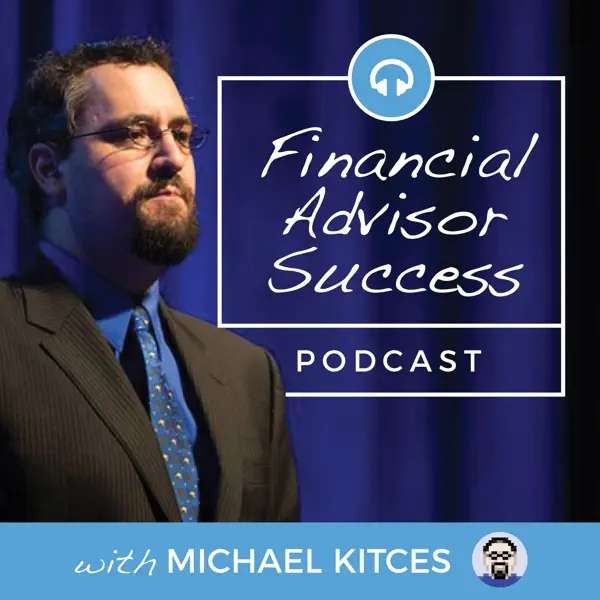
Michael Kitces hosts this one, and it's become the go-to resource for practice management insights. He interviews the industry's most successful advisors and basically deconstructs how they built their businesses. What's their service model? How do they charge? What did their growth actually look like year over year? If you're serious about building something that lasts and scales, this should probably be at the top of your list.
The Perfect RIA

Matthew Jarvis and Micah Shilanski don't waste time with fluff. They focus on creating a lean, efficient practice that's highly profitable without requiring you to work 70-hour weeks. Their approach centers on process optimization, managing your time better, and delivering exceptional client value. If you're feeling stretched thin by growth, this show will help you get control back.
Kitces and Carl - Real Talk for Real Financial Advisors
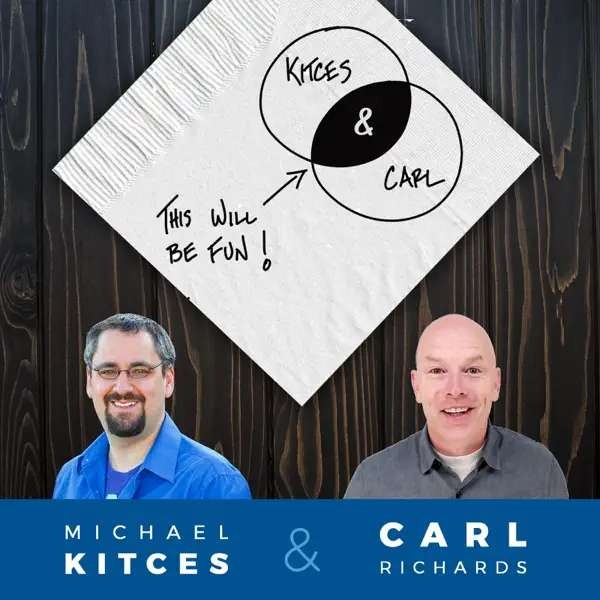
This one's different because it tackles the human side of the business. Michael Kitces teams up with behavioral finance expert Carl Richards to discuss the difficult client conversations, ethical dilemmas, and real-world challenges that textbooks don't prepare you for. It's less about spreadsheets and more about managing relationships and the complexities of running a people-focused business.
For Attracting More Clients: Marketing & Growth Podcasts
The old "I only grow through referrals" approach doesn't really work anymore. Well, it works a bit. But not enough.
The way people find advisors has completely changed. While 62% of consumers still get initial referrals from friends or family, here's what matters: 96% of them then go online to research you further. Half of all investors start their search directly on Google. Before anyone contacts you, 83% want to read your online reviews, 72% will check out your website, and 73% plan to schedule an intro call. Your digital presence is basically your new storefront.
And it pays off. Advisors with a defined marketing plan generate 168% more leads each month and onboard 50% more new clients every year, according to AdvisorStream. Schwab found that firms with written strategic plans and clear client personas attract 67% more new clients. While referrals still convert faster (about 1.7 months), you need a digital funnel for sustainable growth.
Social media is part of this now whether you like it or not. Four in ten advisors report getting clients through social platforms, with LinkedIn (used by 68% of advisors) and Facebook (50%) being most effective. And AI is becoming a real factor. 68% of RIA firms now use AI in some way, and a J.D. Power survey found it's the top technology advisors want their firms to invest in, specifically for lead generation and personalized marketing.
If you're still figuring out marketing compliance around your efforts, tools like Luthor can help you review content at scale so you're not stuck manually checking every social post or email campaign.
Top Advisor Marketing Podcast
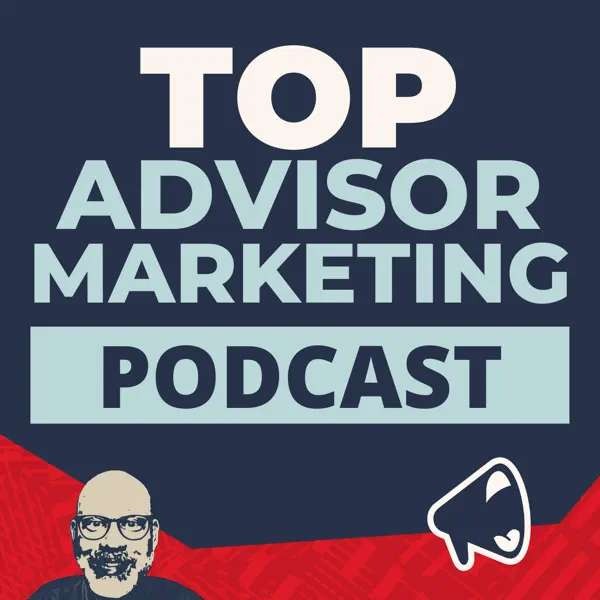
Haven’t been updated lately, yet Matt Halloran covers just about everything marketing-related for advisors. Content creation, social media tactics, podcasting, referral strategies. He brings in experts from both inside and outside financial services, so you get perspectives you wouldn't find in industry echo chambers. If you're looking to level up your marketing across the board, this is a solid starting point.
The Advisor Lab
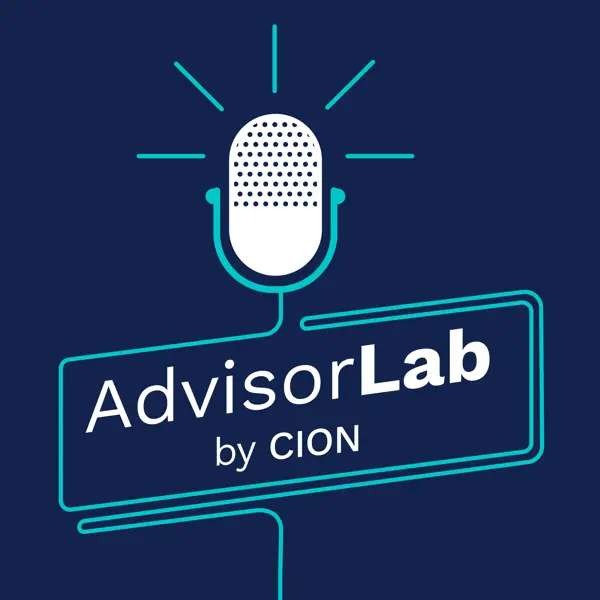
This one's from TIFIN and focuses on where technology and growth intersect. They get into cutting-edge stuff like practical AI applications, marketing automation, and building digital prospecting funnels. If you want to future-proof how you acquire clients and stay ahead of where the industry's heading, this podcast will keep you current.
Modern Financial Advisor
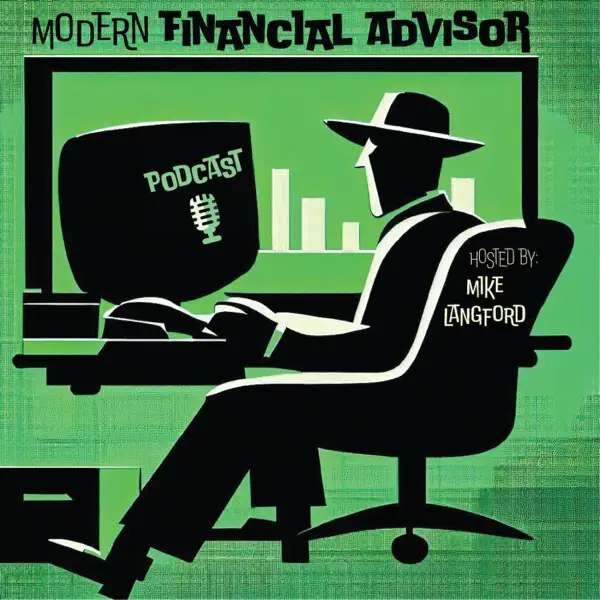
This show is aimed at RIAs and wealth management executives focused on growth. The conversations explore how to align technology, marketing strategies, and service models with what modern clients actually expect. It's more strategic than tactical, giving you a high-level view of building a competitive and client-focused firm.
For Mastering Client Psychology: Behavioral Finance Podcasts
In an industry where fees are under pressure and robo-advisors can handle basic portfolio management, the most valuable thing you provide isn't investment selection. It's behavioral coaching. And we can actually quantify this.
The data is pretty stark. There's what researchers call the "behavior gap," which is the difference between what a fund returns and what the average investor actually earns from it. DALBAR's 2025 study found that over 20 years ending in 2024, the average equity investor underperformed the S&P 500 by 1.11% annually. In 2024 alone, this gap widened to 8.48 percentage points. Morningstar's research estimates investors have earned between 1.1% and 1.2% less per year than their funds' actual returns over the past decade. They're basically giving away about 15% of their growth due to poor timing decisions.
This is where you come in. Vanguard's "Adviser's Alpha" research quantifies what advisors add through various services. The entire framework can add roughly 3% in potential net returns over time, but the single largest component is behavioral coaching at 150 basis points. That 1.5% almost perfectly offsets the documented cost of the behavior gap.
And there's an emotional benefit too. A 2024 Vanguard survey showed that 86% of advised investors report having greater peace of mind, with over 60% feeling less anxiety about their finances. That peace of mind drives trust, retention, and referrals.
The Human Side of Money
Brendan Frazier hosts this one, giving financial advisors practical tools for applying behavioral finance in real client situations. The focus is on building deeper relationships and improving outcomes by understanding the psychology behind why people make the financial decisions they do. It's less theoretical and more about what you can actually use next week.
Standard Deviations with Dr. Daniel Crosby
Dr. Crosby is a psychologist who specializes in behavioral finance, so he comes at markets from a different angle than most. His podcast explores the intersection of psychology and investing, helping you understand investor biases so you can improve how you communicate, manage expectations, and build more resilient relationships with clients.
For Sharpening Your Market Insights: Investing & Economic Podcasts
Your value as an advisor isn't about predicting the next market move anymore. The data pretty clearly shows market timing doesn't work. What matters now is explaining the current move. You're an interpreter and curator of information, providing context and perspective that helps clients stay disciplined when the headlines are screaming.
The investment world is getting more complex. Private markets have grown to over $15.5 trillion in assets, with private credit alone exceeding $1.8 trillion. The FPA's 2025 survey found that 69% of planners are looking at alternatives due to economic uncertainty. This has led to nearly double the use of options and significant increases in private debt and REIT allocations.
Meanwhile, clients are worried about specific things. The FPA's 2024 survey identified their top concerns as interest rates (75%), inflation (73%), and general market volatility (62%). Your ability to discuss these topics intelligently matters more than you might think. State Street found that having "strong credentials/knowledge" was an extremely important selection criterion for 62% of women investors, significantly more than for men.
When you can confidently explain complex topics, you're doing a form of behavioral coaching. You're reducing anxiety by demystifying the headlines, which prevents the panic selling that creates that behavior gap we talked about earlier.
The Long View

Christine Benz and Jeff Ptak from Morningstar host in-depth conversations with influential leaders in investing. They focus on long-term strategies, asset allocation, and risk management. The discussions are thoughtful and evidence-based, giving you perspectives you can share with clients who are trying to think beyond the next quarter.
Planet Money

This NPR podcast is excellent at making complex economic concepts accessible through storytelling. It's entertaining, which is rare for economics content. Listening to this gives you a toolkit of analogies and narratives to help clients understand the forces shaping markets and their portfolios. Sometimes the best way to explain something is through a good story.
Invest Like the Best with Patrick O'Shaughnessy
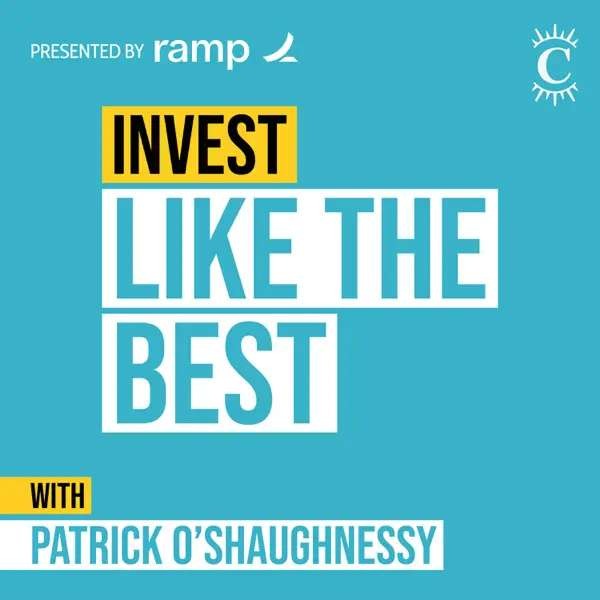
O'Shaughnessy interviews leading investors, founders, and business thinkers. The conversations explore their frameworks, mental models, and investment philosophies. It's basically a masterclass in how successful people in finance and business think about markets and opportunity. Even if you don't adopt their strategies, understanding their thinking sharpens your own.
How to Turn Listening into Action
Consuming information is only the first step. The real value comes from implementation. Without a system, most of what you learn just evaporates after a few days. Here's a simple process to make sure the insights from these podcasts actually improve your practice.
Create a "Big Ideas" Notebook
Set up a dedicated notebook (physical or digital, doesn't matter) just for podcast takeaways. After each episode, write down one thing that resonated. Not a transcript. Just the single most actionable or interesting idea. This could be a new marketing tactic, a client communication framework, or a practice management insight. The act of summarizing forces you to actually think about it, which makes it easier to remember later.
Schedule a Monthly "Integration Meeting"
Block one hour on your calendar each month for what you might call an Integration Meeting (though you can call it whatever you want). This is dedicated time to review your Big Ideas notebook from the past four weeks. The goal is to pick just one or two ideas to actually implement in your practice over the next month. This disciplined approach prevents you from getting overwhelmed and ensures consistent, incremental progress. Because implementing two ideas per month means 24 improvements per year, which really adds up.
Final Thoughts
Look, insights are valuable. But if your marketing isn't compliant, those insights won't help you much. Compliance review can be a bottleneck for advisors trying to scale their marketing efforts, and it's something you can't really shortcut.
That's where something like Luthor becomes useful. It's an AI-based tool that automatically reviews marketing assets for compliance, so you can reduce the time and effort spent on manual review. Whether you're publishing more content, ramping up social media, or building email campaigns, having a system to handle compliance at scale means you can focus on growth without creating unnecessary risk.
If that sounds relevant to your practice, you can request demo access here to see how it works.



.jpeg)
